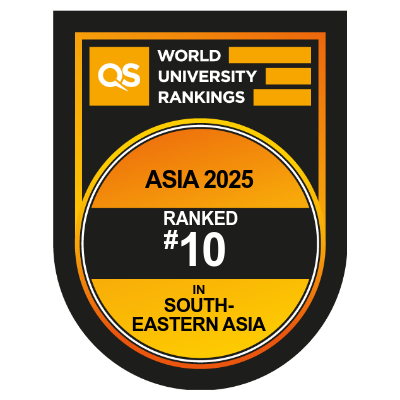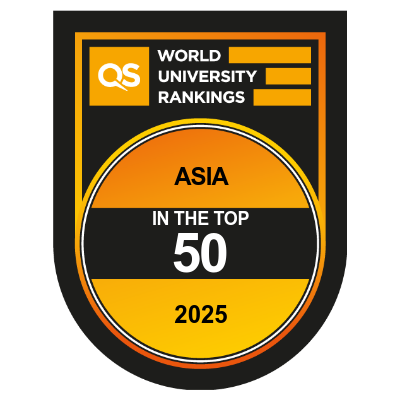sustainable development goal 5
GENDER EQUALITY
Gender refers to the distinctions in roles, characteristics, attitudes, and behaviors that evolve within society. Gender roles can be categorized into productive, reproductive, and social functions.
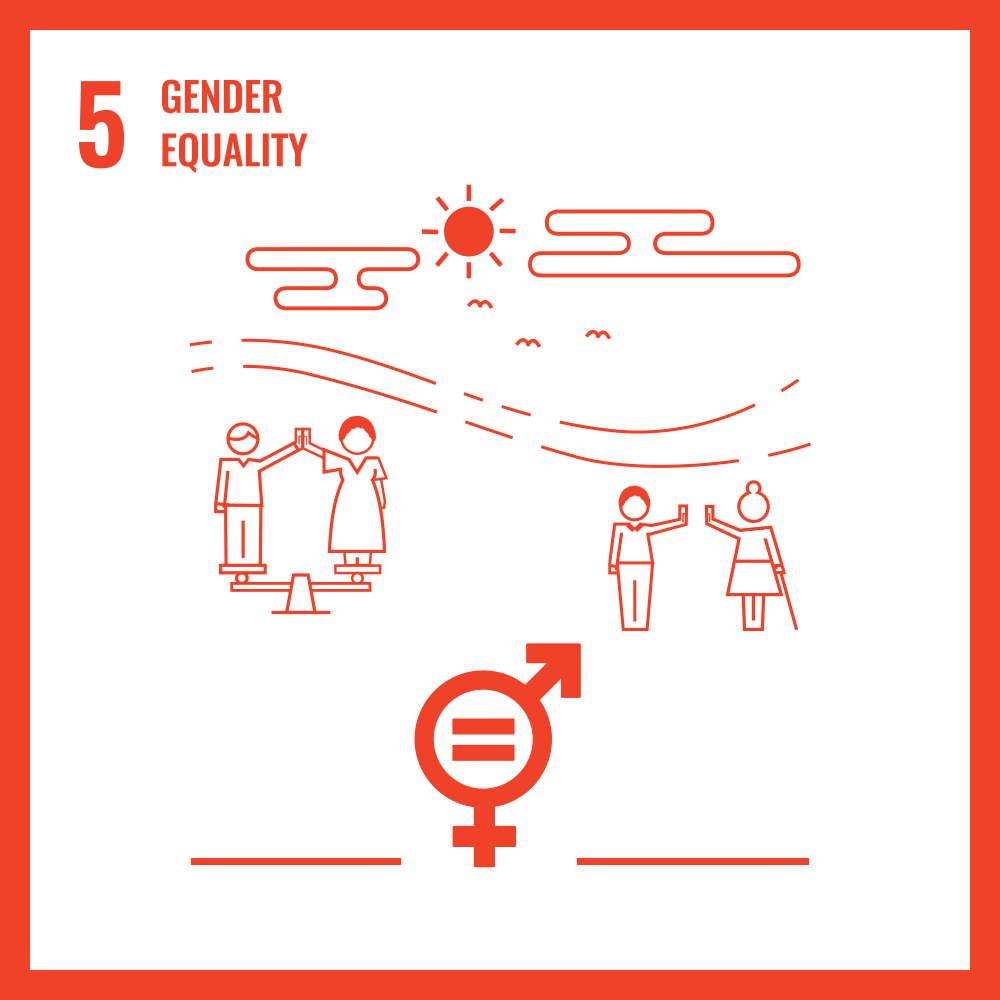
STUDENT ACCESS MEASUREMENT
Universities implement student access measurement tools to advance gender equality, analyzing enrollment data, program participation, and resource allocation. Such metrics are crucial for identifying disparities and driving policy changes to create equitable learning environments where students of all genders can access opportunities and succeed on an equal footing.
Universitas Indonesia (UI) has demonstrated consistent dedication in ensuring justice and equality in their new student admission program. As a concrete proof, UI has developed a gender-based tracking system for new student admissions. For those requiring to explore further information, the data are easily accessible via UI admission website.
It is important to note that the effort of UI in implementing this integrated information system is not just a mere formality. This system is carefully designed to measure and capture data based on applicants and those accepted as new students. The system includes data from both genders, namely men and women, thereby ensuring that the selection process goes without gender bias.

School of Environmental Studies (SIL) of UI held the 2022 Virtual Open House as its innovation on tracking student registration and acceptance levels. This event provided an in-depth overview of the master and doctoral programs in the field of Environmental Studies and Disaster Management. In addition, this event also introduced various provided pathways, including learning pathway exploring theories and practices, research pathway prioritizing research, as well as distance education pathway offering flexibility for those living far from campus. A Credit Earning Program allows credit transfers. The program was designed to attract interest and to track applicants from different genders and social statuses. On the other hand, UI postgraduate program admission is also announced at UI Entrance Selection (SIMAK UI), an integrated independent selection exam platform for prospective students desiring to enter and study at UI for various levels and educational programs available.
Universitas Indonesia (UI) is one of the prominent higher education institutions in Indonesia. This institution has been established for a long time and become an example for other universities in terms of student registration and admission. In 2018, the Rector of UI issued a Decree No. 2719 on the Determination of Key Behavioral Indicators of UI Cultural Values. The decree includes various principles forming the basis for UI to carry out diverse activities, including the new student admission process. UI understands the importance of these principles in realizing its vision and mission. Therefore, UI determines to socialize and internalize these principles to all campus society and the general community.
One of the most notable principles and the core of this Decree is the principle of equality. UI believes that every individual has the same right to receive education. Therefore, UI is committed to providing equal opportunities to every individual regardless of their background, such as race, ethnicity, religion, gender, marital status, age, disability, or sexual orientation. It shows the extent to which UI values diversity and inclusiveness. In addition to the principle of equality, this Decree also emphasizes the importance of treating every individual with respect, humanity, and justice. UI understands that every individual is unique and has human rights that should be respected. Therefore, in every policy and decision taken, UI always ensures the well implementation of these principles.
In the context of new student admissions, UI wants to ensure that every prospective student has the same opportunity to join the society of academicians of UI. Therefore, the selection process is carried out strictly and transparently, ensuring the application of equality and justice principles. With this Decree, it is hoped that UI can continue to apply the principles that have been regulated and become an example for other universities. Equality, justice, and respect for human rights are crucial in the world of education. Therefore, UI is committed to always upholding these principles in every activity carried out.
UI has long paid special attention to gender equality in education. Even though UI student admission selection is not based on gender, the number of female applicants accepted is actually higher than the male. In response to this, the registration and admission policy for new students at UI, specifically women, is designed to uphold the principles of equality and dignity. Using diverse socialization methods, UI strives to ensure that all its members, from lecturers, educational human resources, to students, understand and fully support this policy. Furthermore, in UI 9 basic values, gender equality is one of the important points that is always emphasized. These basic values are not just a formal document, but a guideline for all members of UI society to interact and contribute to the world of education. Thus, UI strives to not only be a superior educational institution in terms of academic aspects, but also a pioneer in social issues, including gender equality. As a reflection, the phenomenon of the higher number of female applicants accepted shows that women have passion, determination, and strong commitment in pursuing higher education. It is clear proof that when given equal opportunities, women are able to compete and even surpass the achievements of men.
Universitas Indonesia (UI) firmly shows its commitment to supporting access to education for women through various schemes provided. It is a real form of the dedication of UI in realizing gender equality in the world of higher education.
Counselling is one of the methods UI relies on to provide support to female students, one of which is through the integrated clinic at Faculty of Psychology (FPsi) of UI that provides counselling services for female students who need them. The Student Executive Board (BEM) of FPSi UI also has a counselling service known as Psyhope. At Faculty of Economics and Business (FEB) of UI, Student Guidance and Counselling (SGC) plays a vital role in helping resolve academic and non-academic problems, thereby ensuring that all students can learn optimally without obstacles. Meanwhile, from a religious perspective, Faculty of Law (FH) of UI has an Always Friendly Islamic Nuance (SERAMI) program providing spiritual assistance specifically for female students.
- Integrated Clinic of Faculty of Psychology (FPsi) of UI
- Psyhope counselling service of Faculty of Psychology (FPsi) of UI
- Student Guidance and Counselling (SGC) of Faculty of Economics and Business (FEB) of UI
- Always Friendly Islamic Nuance (SERAMI) of Faculty of Law (FH) of UI
Observed from a scholarship perspective, UI is significantly proactive in providing various scholarships to help female students finance their education. Some of them include 2022 RSA PTI Scholarship, 2022 Exemplary Group Scholarship, Fast Track Bachelor-Master Program Scholarship, Postgraduate Scholarship of Faculty of Computer Science (Fasilkom) of UI, and many more. Faculty of Economics and Business (FEB) of UI also had a scholarship system accessible for all FEB UI students. In 2022, UI offered scholarships related to the environment, namely 2022 Waste for Scholarship. Bank Indonesia Scholarship and the Scholarship of School of Strategic and Gender Study also attracted the attention of UI students. However, it is interesting to note that 84% of recipients of the Scholarship of Faculty of Public Health (FKM) of UI were women. Furthermore, UI also offered a special platform facilitating students, including female students, to search for and obtain scholarships suitable for their needs and interests.
- UI Scholarship System
- 2022 RSA PTI Scholarship
- 2022 Exemplary Group Scholarship
- Fast Track Bachelor-Master Program Scholarships of Faculty of Computer Science (Fasilkom) of UI
- Postgraduate Scholarship of Faculty of Computer Science (Fasilkom) of UI
- Scholarship System of Faculty of Economics and Business (FEB) of UI
- 2022 Waste for Scholarship
- 2022 Bank Indonesia Scholarship
- Scholarship of Faculty of Public Health (FKM) of UI
However, the support of UI for women is not only through counseling and scholarships, but also through a Sexual Violence Prevention and Handling Task Force (PPKS). PPKS is part of higher education functioning as a forum for reporting and handling all acts of sexual violence within the campus environment. This task force also functions as a center for the Sexual Violence Prevention and Handling in Higher Education. In addition, Faculty of Mathematics and Natural Sciences (FMIPA) of UI once held a program entitled “Examining Gender with the Psychology of Women and Gender”, offering a new perspective on gender among students. Meanwhile, Faculty of Economics and Business (FEB) of UI held a webinar on sexual harassment frequently experienced by women on public transportation and a conference on Gender Equality and Diversity. All is part of the efforts of UI to educate and provide a platform for female students to discuss, learn, and contribute actively in gender issues.
- The Sexual Violence Prevention and Handling Task Force (PPKS))
- Examining Gender with the Psychology of Women and Gender
- Webinar on Sexual Harassment Experienced by Women on Trains
- Webinar on Sexual Violence against Women on Trains
- Gender Equality dan Diversity
Thus, UI not only provides access to education for women, but also strives to ensure that women receive optimal support while on campus. It is a concrete form of the commitment of UI to realizing gender equality and justice in the world of higher education.
Universitas Indonesia (UI) supports women involvement in underrepresented fields. One of them is in management and advocacy for Natural Resources (SDA). In many countries, including Indonesia, women have an important role in managing natural resources and making decisions related to land and other natural resources. Unfortunately, the roles and contributions of women frequently do not receive equal recognition in this regard.
In Indonesia, indigenous women and local women have a crucial role in fighting for the right to manage natural resources. Their contributions and struggles in this aspect have been going on for a long time and should receive better recognition. Through various discussion forums and seminars, this role continues to receive attention. History has recorded how indigenous women and local women have played an important role in advocating for rights to land and natural resources. It is not a new issue, as it has existed since the 80s. There were women figures, pioneers of this struggle in that era, then continued by many other women.
The struggles are not individual efforts, but part of women’s movement at the grassroots. In certain communities, women not only play a role in consumption, but also in organizing rituals and other activities in the community. If we look deeper, although currently there are no women traditional leaders, women in the past actually held key roles in several traditional communities. The importance of the role of women in the history and natural resource management in Indonesia cannot be denied. Women should be given space to participate actively in decision making regarding natural resources. What they are fighting for is not only for their own interests, but also for the transformation of a socio-cultural system more inclusive and fairer for all, especially women. UI, with its history and integrity, strongly supports this effort and hopes that women involvement in underrepresented fields can continue to be increased in the future. With support from various parties, including well-known educational institutions such as UI, it is hoped that women can continue to obtain their rights in various aspects of life, especially in managing natural resources.
UI Lecturers Support the Struggle of Women in Human Resource Sector
The Indonesian government does not apply special requirements based on gender in the Civil Servant recruitment process. It is stated in the Government Regulation of the Republic of Indonesia No. 17 of 2017 on the Management of Civil Servants. The regulation states that every individual has the same opportunity in the selection process to be a civil servant. This system was later adopted by Universitas Indonesia (UI). Based on the Government Regulation of the Republic of Indonesia No. 17 of 2017 on the Management of Civil Servants, UI does not stipulate special requirements based on gender in the selection process through UI Rector’s Regulation No. 33 of 2018 concerning UI Human Resources Management. Therefore, everyone has the same opportunity to participate in the selection process and be selected as an employee after passing the test.
- Government Regulation of the Republic of Indonesia No. 17 of 2017 on the Management of Civil Servants
- UI Rector’s Regulation No. 33 of 2018 on UI Human Resources Management
In addition, UI has a strong commitment to ensuring that every member of its community receives fair and equal treatment. In an effort to realize the vision and mission of quality education, UI places organizational integrity and academic ethics at the forefront. One manifestation of this commitment is the issuance of UI Rector’s Decree No. 2719 of 2018 on the Determination of Key Behavioral Indicators of UI Cultural Values. This Decree is a guideline for the society of academicians of UI. This document clearly states that UI 9 Basic Values should be internalized and implemented by every individual under the auspices of the university. These values are not mere written words, but are an identity that should be instilled, understood, and practiced in everyday life on campus.
UI 9 values include the values of Justice and Equality. It is not a mere slogan, but a life principle adopted by UI. It means that the aspects of justice and equality are always the main consideration in every policy, activity, and action carried out by UI. Every individual, without exception, has the same rights and opportunities. This includes access to education, opportunities in organizational activities, and treatment within the scope of campus administration. UI emphasizes the importance of avoiding discrimination in any form. There are no differences in race, ethnicity, religion, gender, marital status, age, disability, or sexual orientation grounding for providing different treatment. All individuals are fully regarded and respected. Adhering to these values, UI hopes to create a conducive, harmonious, and inclusive campus environment, where every member can grow and develop optimally. In addition, by practicing these values, it is hoped that UI graduates will carry the spirit of justice and equality to the wider community, becoming agents of positive change for Indonesia.
- UI Rector’s Decree No. 2719 of 2018 on the Determination of Key Behavioral Indicators of UI Cultural Values
- UI Nine Values (9 Nilai UI) Pocket Book
Gender equality is implemented by all faculties at UI. For example, Faculty of Public Health (FKM) of UI and Faculty of Psychology (FPsi) of UI follow the policy of providing maternity leave for employees who have recently given birth. This policy is outlined in UI Rector’s Regulation No. 33 of 2018 on UI Human Resources Management in Articles 73, 74, and 76. Maternity leave is given for a maximum of 3 calendar months, while leave for important reasons is given for a maximum of 1 calendar month. Employees taking maternity leave still receive full salary, but do not receive meal and transportation allowances.
- Non-Discrimination Against Women Policy of Faculty of Public Health (FKM) of UI
- Non-Discrimination Against Women Policy of Faculty of Psychology (FPsi) of UI
Moreover, Vocational Education Program (Vokasi) of UI also carries out a campaign against violence against women. These nine cultural values serve as guidelines in UI employee recruitment process. UI does not differentiate between genders in the recruitment selection.
Vocational Education Program (Vokasi) of UI Carries out a Campaign against Violence against Women
The Indonesian government does not set specific requirements based on gender in the recruitment process for civil servants. Thus, every individual has the same opportunity to take part in the selection process and become a civil servant. It is stated in the Government Regulation of the Republic of Indonesia No. 17 of 2017 on the Management of Civil Servants. Similar to the Indonesian government, through UI Rectors’ Regulation No. 33 of 2018 on UI Human Resources Management, Universitas Indonesia (UI) does not determine special requirements based on gender in its selection process. It confirms that everyone has the same opportunity to take part in the selection process and be selected as an employee at UI after passing the exam determined by the university.
- Government Regulation of the Republic of Indonesia No. 17 of 2017 on the Management of Civil Servants
- UI Rector’s Regulation No. 33 of 2018 on UI Human Resources Management
All prospective students and employees have the same opportunity to take part in the selection process and to be selected as students or employees as they pass the exams held. UI also has organizational values reflected in the legislation and regulated in UI Rector’s Decree No. 2719 of 2018 on the Determination of Key Behavioral Indicators of UI Cultural Values. The values applied in the university environment are the UI 9 Basic Values. The values of Justice and Equality prioritize the provision of fair and non-discriminatory opportunities and treatment to every individual regardless of race, religion, ethnicity, age, marital status, disability, sexual orientation, and gender identity.
- UI Rector’s Decree No. 2719 of 2018 on the Determination of Key Behavioral Indicators of UI Cultural Values
- UI Nine Values (9 Nilai UI) Pocket Book
However, it should be emphasized that even though UI does not support transgender concept, UI still does not discriminate against transgender individuals. In all its policies and actions, UI always upholds the principle of solidarity, the essence of which is respecting and accepting every difference including ethnicity, nationality, religion, race, or gender. The essence of this principle is tolerance. By understanding that diversity is cultural wealth required to be respected, UI strives to create a conducive and inclusive academic environment for all members of its community. As a concrete example of this principle, Faculty of Psychology (FPsi) of UI has taken proactive measures by organizing and implementing diverse activities aimed at promoting understanding and acceptance of all individuals, regardless of their background. These initiatives emphasize the commitment of UI to realizing a vision of equality and justice for all members of the society of academicians.
Non-Discrimination Policies for Transgender of Faculty of Psychology (FPsi) of UI
the procedures for granting leave to Civil Servants. In an effort to support the participation of women, Universitas Indonesia (UI) also applies special regulations covering maternity and paternity leave rights. This right is regulated in UI Rector’s Regulation No. 33 of 2018 on UI Human Resources Management, explained in articles 73, 74, and 76 that female employees are given the right to maternity leave, while male employees are given paternity leave when their wife gives birth. This leave is given for a maximum of three months while still receiving full salary. In addition, emergency leave is also given specifically to male employees with newborn babies.
- National Civil Service Agency No. 24 of 2017 on the Procedures for Granting Leave to Civil Servants
- UI Rector’s Regulation No. 33 of 2018 on UI Human Resources Management
- Example of the Granting of UI Maternity Leave
To support working and studying mothers, UI offers various facilities, one of which is the lactation room available in all faculties. This room is equipped with air conditioner and sterilizer to allow female employees to breast-feed their children comfortably. One of the lactation rooms at UI is on the sixth floor of the Administrative Center (PAU) building.

In addition, at the faculty level, as a form of support for breastfeeding mothers, Vocational Education Program (Vokasi) of UI also provides a lactation room. These facilities and policies show the commitment of UI to providing full support to breastfeeding employees and students, enabling them to carry out their duties at the university comfortably while providing the best custody for their children.

Universitas Indonesia (UI), as a prominent higher education institution in this country, not only focuses on the formal education for its students, but also understands that a great number of students also have responsibilities as parents. By understanding the complexity of the lives of its students, UI is committed to providing full support, one of which is by offering care and education facilities for their children.
One of the concrete efforts made by UI is the establishment of Makara Early Childhood Development Centre (PPMD) or also known as Makara Child Development Park. Makara PPMD is not just an ordinary child care institution, but a carefully and comprehensively-designed institution. Its strategic location in Faculty of Psychology (FPsi) of UI shows the dedication of UI in prioritizing educational and psychological aspects in the growth and development of children. Makara PPMD provides various options for students with its day care and preschool programs. The programs can be free or paid, depending on the needs and financial capabilities of the parents. However, the most important aspect is how the program is specifically designed to meet the needs of children at an early age, a crucial stage in the physical and mental development of children.
Another unique value of Makara PPMD is its collaboration with several other UI faculties. Faculty of Medicine (FK) of UI, Faculty of Dentistry (FKG) of UI, and Faculty of Nursing (FIK) of UI also contribute to PPMD program development. With this collaboration, children receive a holistic education, covering physical health and dental health aspects, as well as psychological and emotional aspects. Moreover, Makara PPMD also functions as an education and innovation laboratory. Through this institution, UI strives to continue to innovate and conduct research on the best teaching and educating methods for children. It is certainly beneficial for future generations as they receive quality education in line with current developments.
However, the dedication of UI to the development of children in Indonesia is not only shown in Makara PPMD. FIK UI, for example, also provides daycare facilities for students. This effort reaffirms the commitment of UI to making a real contribution to the development of the young generation in Indonesia. The presence of these facilities is certainly very helpful for students who also act as parents. They do not have to worry about leaving their children while attending lectures because they believe that their children are in a safe, educated, and professional hand. It is a form of real support from UI for its students, allowing them to focus on their studies without having to be burdened by worries about the welfare of their children
In conclusion, UI has proven its active role in supporting the welfare of students and their families. Through facilities such as Makara PPMD and Daycare at FIK UI, UI emphasizes that education is not only limited to the lecture rooms, but also includes other aspects of student life. Therefore, UI actively contributes to creating a healthy, intelligent, and noble generation.
Universitas Indonesia (UI), as one of the prominent educational institutions in this country, not only pays special attention to its students, but also to lecturers and staff as the integral part of the university. Recognizing that many lecturers and employees are also parents of young children, UI is committed to providing support in the child care aspect. The goal is clear: to help them balance work responsibilities with parental responsibilities.
As a form of its commitment, UI established Makara Early Childhood Development Centre (PPMD) or better known as Makara Child Development Park. This Special Work Unit is not just an ordinary child care facility. In fact, it is an institution specifically designed with an educational and psychological approach to provide the best care for children at an early age. The strategic location of Makara PPMD in the Faculty of Psychology (FPsi) of UI emphasizes the focus of UI on educational and psychological aspects in child development. With its two main programs, namely the day care program and the preschool program, Makara PPMD offers flexibility for parents, particularly UI employees and lecturers. With an operational schedule starting from 8 am to 4 pm, the day care program is a solution for many parents who have to work on campus.
However, what makes Makara PPMD different is its in-depth approach to child health and psychology education. Different from ordinary child care, Makara PPMD ensures that every child receives care and education appropriate to their development stage. Certainly, it requires cooperation from various faculties at UI, such as FPsi of UI, Faculty of Medicine (FK) of UI, Faculty of Dentistry (FKG) of UI, and Faculty of Nursing (FIK) of UI. The collaboration between faculties render Makara PPMD programs more holistic and comprehensive. Moreover, Makara PPMD also functions as a development and education laboratory for children. Through this institution, UI strives to continue to encourage innovation in teaching methods and education for children. It is a concrete effort made by UI to the community of Indonesia, especially in preparing a healthy, intelligent, and characterized young generation.
Furthermore, FIK UI also takes proactive measures by providing daycare facilities for students, indicating that UI does not only focus on academic aspects, but also the basic needs of its students. With these facilities, UI shows that educational institutions are not only places to learn and teach but also to grow and develop other aspects of life. By supporting employees, lecturers, and students who are also parents, UI strives to create a conducive environment for all its society.
In conclusion, UI has proven its role as one of the pioneers in education in Indonesia. Not only does it provide quality education for its students, UI also provides full support for lecturers and staff in the aspect of child care. In this regard, UI has made an effort to create harmony between work and family life, emphasizing that both are equally important in creating a balanced and harmonious generation.
Universitas Indonesia (UI), as one of the prominent educational institutions in Indonesia, is fully committed to providing support to its students. By recognizing the special needs of female students, UI understands the unique challenges faced by women in the academic environment. It is important to note that women frequently face various forms of emotional, psychological, and social problems and stress that male counterparts may not experience. Therefore, the need for special assistance is crucial for them. As a form of concrete support, UI has introduced a special mentoring scheme for female students. This scheme is established with the aim of ensuring that every female student obtains the necessary support to lead her academic life well. Therefore, every female student will feel safe, supported, and facilitated to access the resources needed to face challenges in the future.
The Integrated Clinic is one of the concrete efforts of UI. With its role as a Teaching Clinic, this Clinic not only provides services to students, but also to the wider community. Various psychological services offered by this clinic include individual consultations for children and adults, educational evaluations, and psychological consultations for employees or prospective employees. These services show the determination of UI to improve psychological and emotional well-being of the community. Furthermore, the Student Executive Board (BEM) of Faculty of Psychology (FPsi) of UI launched the “Psyhope” program. This program has specific focus as a mentoring scheme for women. With a more personal and in-depth approach, this program aims to provide support to female students who may face several challenges during their studies. Through this program, female students are given the opportunity to talk, share, and obtain solutions to problems they may face.
- Integrated Clinic of Faculty of Psychology (FPsi) of UI
- Psyhope Counselling Service of Faculty of Psychology (FPsi) of UI
In addition, Faculty of Economics and Business (FEB) of UI also shows its commitment to supporting its students. Through the Student Guidance and Counselling (SGC) program, FEB UI seeks to provide support to students in overcoming various difficulties they may face during their studies, both academic and non-academic. SGC functions as a forum for students to find solutions to problems hindering their academic achievement. With support from SGC, it is hoped that every student, including female students, can complete their studies well and on time. Through these diverse programs and initiatives, UI proves that its commitment is not merely words. Rather, it is a concrete action to ensure the well-being of its female students. Therefore, every female student at UI can feel appreciated, supported, and facilitated to have the same opportunity to achieve academic and personal success.
Student Guidance and Counselling (SGC) Faculty of Economics and Business (FEB) of UI
Undeniably, challenges faced by female students may differ from each other. However, with strong support from the university, it is hoped that they can face and overcome the challenges. With the right mentoring, female students will have greater confidence to pursue their dreams and aspirations. In a broader context, the efforts of UI show the importance of supporting educational institutions in recognizing and overcoming the challenges faced by female students. Through the diverse mentoring programs provided, UI affirms its commitment to creating an inclusive, supportive, and empowering learning environment for all students, regardless of their gender.
Universitas Indonesia (UI), as one of the prominent educational institutions in Indonesia, is committed to creating an inclusive and fair educational environment. In its efforts to ensure gender equality in the academic world, UI has carried out a special initiative by measuring the number of female graduates. The reason behind this initiative is to obtain a concrete picture of the proportion of female graduates compared to male, allowing the university to understand and evaluate whether there is a gap to be corrected.
Measuring the number of female graduates is not merely a statistic. It is an important measure to ensure that female students have the same opportunity for education and academic success as male students have. The results of this measurement become a benchmark for UI in formulating strategies and supporting programs that may be required to ensure equal opportunities to graduate for all students. In this context, UI shows its dedication not only in providing quality education, but also in ensuring that every student, regardless of gender, has equal access to education and opportunities for success. By measuring the number of female graduates, UI seeks to ensure that there is no gender bias or unconscious injustices occurring in the educational process. It reflects the vision of UI in creating an equitable educational environment valuing and supporting every individual to achieve his or her full potential.
Universitas Indonesia Returns to Face-to-Face Graduation Graduating 8362 Graduates
UI has a number of different faculties and study programs supporting gender equality and inclusivity in their respective ways. One concrete example of the commitment of UI to gender equality is evident from the action taken by Vocational Education Program (Vokasi) of UI.
Vokasi UI has proactively measured the number of female graduates in its study program. The aim of this initiative is to ensure that female students in Vokasi UI receive the same opportunity as male students do and to assess whether there are certain barriers or gaps that may be affecting the graduation rate of female students. By collecting and analyzing this data, Vokasi UI attempts to understand the patterns, challenges, and opportunities faced by female students. Supposing a gap is found, corrective measures and support programs will be arranged specifically to address the issue. It shows that the faculty is concerned not only with the overall academic achievement of its students, but also with justice and gender equality in the educational process.
Measuring the number of female graduates, as performed by Vokasi UI, is an example of how a faculty or study program within a university can take special initiatives to support gender equality. Such initiative reflects the real commitment of UI to creating an inclusive and fair educational environment supporting the success of every student, regardless of gender. With the efforts, UI aspires to become a model for other educational institutions in promoting gender equality in the world of education.
Track Women’s Graduation Rate of Vocational Education Program (Vokasi) of UI
Universitas Indonesia (UI) always emphasizes the importance of integrity and honesty in all aspects of academic and non-academic activities. As proof of this commitment, UI has established UI Rector’s Regulation No. 28 of 2018 on the System for Reporting Alleged Violations (Sipduga UI) or better known as the Whistle Blowing System (WBS) of UI. This system is specifically designed to protect anyone reporting suspected violations, including discrimination, from educational or employment disadvantages.
WBS UI is a mechanism facilitating the report of action or behavior suspected of violating UI Code of Ethics and Behavior as well as other internal regulations. It is also in line with UI Rector’s Regulation No. 14 of 2019 establishing a code of ethics and behavior within the university environment.
This mechanism not only facilitates the reporting process, but also emphasizes protection for whistleblowers. Through this Decree, principles, types of violations and mechanisms for resolving reports are emphasized. For those who dare to report, UI provides guaranteed protection and even, in several cases, rewards in appreciation for their bravery.
- UI Rector’s Regulation No. 14 of 2019 on Code of Ethics and Behavior in the University Environment
- UI Rector’s Regulation No. 28 of 2018 on the System for Reporting Alleged Violations
- Website of UI Information and Documentation Management Officer
- Website of Sipduga UI
- The Sexual Violence Prevention and Handling Task Force
In an effort to increase awareness and educate the society of academicians about discrimination and diversity issues, UI held special events such as International Women’s Day commemoration by launching guidebooks and public discussions on social media as a diversity campaign tool. UI has also formed a Sexual Violence Prevention and Handling Task Force as a response to the problem of gender-based violence.
Faculty of Public Health (FKM) of UI, for example, has introduced its own policy on Controlling Gratifications and Reporting Violations through WBS. Moreover, they have an electronic-based reporting platform through the E-Komplain application equipped with Standard Operational Guidelines (POB) for handling complaints. Faculty of Administrative Science (FIA) of UI also carried out similar action. In addition, every student executive board at the faculty level has a protection system for people reporting discrimination against educational or employment disadvantages. Lastly, Faculty of Economics and Business (FEB) of UI provides a special portal called SIAPP. This portal is expected to be a safe place for individuals to report suspected discrimination or other violations without having to worry about loss of education or employment. As one of the prominent universities in Indonesia, UI is committed to creating a conducive environment for all its society.
- Faculty of Public Health (FKM) of UI: Policies Protecting Those Reporting Discrimination
- Department of Student Welfare Advocacy (Adkesma) by the Student Executive Board (BEM) of Faculty of Psychology (FPsi) of UI
- Complaint Form
- Faculty of Administrative Science (FIA) of UI: Policies Protecting Those Reporting Discrimination
- Reporting System of Faculty of Economics and Business (FEB) of UI
WOMEN'S PROGRESS MEASURES
To gauge progress in gender equality, measures for women’s advancement encompass various aspects such as political representation, economic participation, access to education, and health services. These metrics are essential to ensure women’s empowerment and to track compliance with the Sustainable Development Goals for true gender parity.
Get to Know Us
News Related to Us
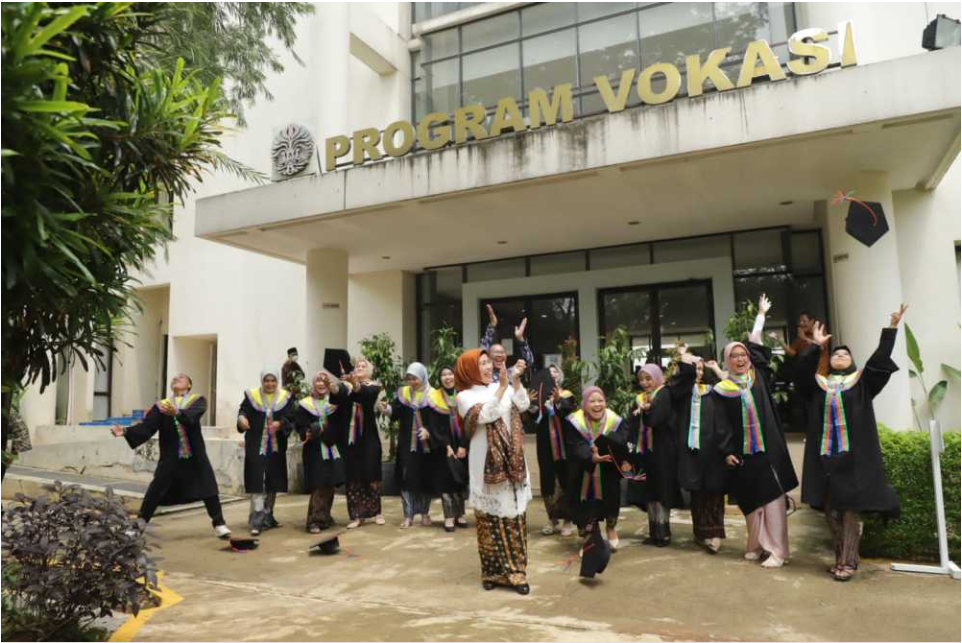
A total of 13 students who won the Serang Regency Government Vocational scholarship at the University of Indonesia graduated and immediately went to work at the Dr. Drajat Prawiranegara Hospital (RSDP).
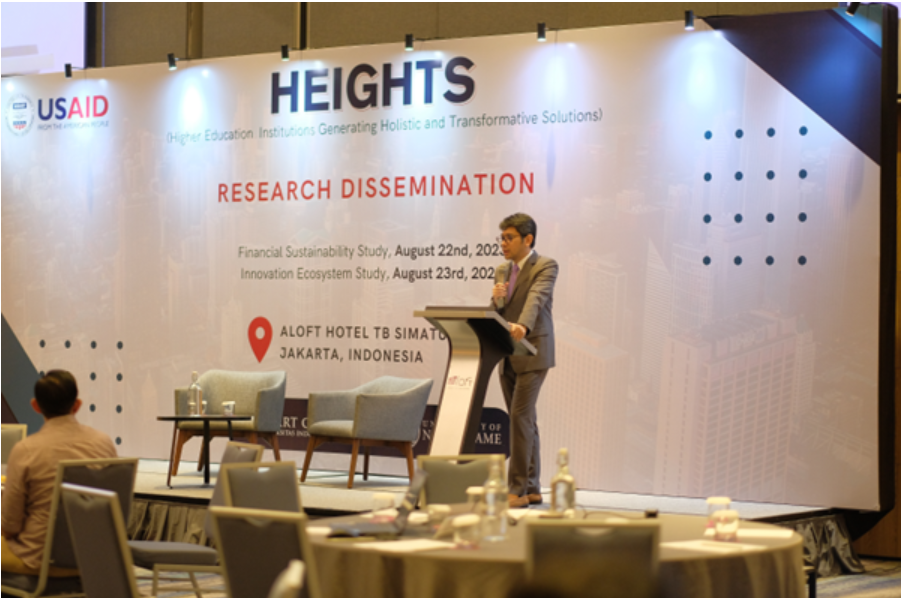
Smart City Universitas Indonesia (UI) collaborated with the University of Notre Dame and the United States Agency for International Development (USAID) to conduct research on the role of universities in creating a dynamic agricultural innovation ecosystem in West Java.

The Faculty of Social and Political Sciences UI, as an implementation of the Tri Darma of Higher Education, organizes integrated social programs through sports activities. It is a Badminton Championship event organized by FISIP which is attended by 511 badminton athletes.

